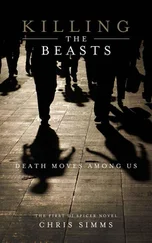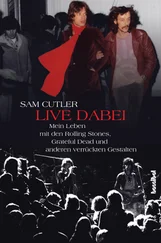, adding the texts by Thomas Pynchon, which take a different perspective on the same scenario.
A Face was a far cry from the serendipity of
Man or Monkey . Wholly pre-written, it was based on a unified (but exploded) narrative, carefully sequenced and assembled to read more like a movie than a rock album. Where
Man or Monkey had been the product of immediate human interaction — exploring random paths —
Face was a work of sustained commentary, accommodating itself to materials already in the world. It was also recorded, though no one noticed, in old-style stereo: each sound was either only in the left channel, or the right channel, or in both; so there was no panning and no artful stereo picture. It was a nightmare to cut, but well worth it for the subtle but distinctive psycho-acoustical affect it imparted to the album as an experiential whole.
In concert, the trio continued to work loosely around its recorded pieces — as the live recordings show. Immediacy, invention, flexibility and intensity remained our main concerns, and always took precedence over interpretation or reproduction. By this time we were also using non-musical sounds as structure, and building dramaturgically as much as musically — in part facilitated by the appearance of an affordable sampling keyboard — Ensoniq’s Mirage . As soon as this little miracle arrived in Europe — at a Frankfurt trade fair — Heiner bought one; Christoph followed immediately. And Christoph, after all, had been sampling from the start — the hard way — so now he could finally retire his tottering piles of pre-recorded cassettes in favour of a more flexible technology. I too, by then, had much extended and refined the electrification of my kit, adding more processors, channels, contact microphones and secondary objects (chains, frying pan, tambours) to its armoury. So while we were still thinking Rock, that orientation was increasingly offset by, and interspersed with, something more like foley -thinking: using cultural debris, stark juxtapositions and incongruence as its basic affective vocabulary. We had just started to invite guests to play with us — hoping to shake up the material a bit (Dietmar Diesner and Hannes Bauer were the first) — when invitations to play began to fall away. After the Lisbon concerts in December 1992, no more offers came in. So we stopped.

Alfred Harth and Chris Cutler
Vitor Rua was half of the duo Telectu when he came to our last concert; at the time we didn’t know him and he didn’t know us.
Walter Benjamin speaks about the loss of aura in a copy of an original. I’d like to tell a personal story about that: whenever I heard Thelonius Monk, I always felt a sense of unworldliness. He is so wonderful, so advanced — and the ‘silences’ in his solos: simply amazing! Well, it happens that I had created an “aura” around Monk's playing, around those silences between the notes and chords: ‘How the hell does he get to these silences?’… and the aura follows. Then, at last, I saw Monk playing, and I saw he has rings on every finger, and they are loose. When he plays, they slip and he stops to adjust them. That’s the cause of those mysterious silences: he’s adjusting his rings. What a disappointment; it’s not intellectual or rational, it’s a matter of… fashion.
Of course the question is not that simple: as soon as one realizes that Monk does this with his rings, another kind of aura is born that replaces the aura of his silences; there is a morphing effect of one kind of aura to another. What I am trying to say is that before I saw the original, I had the copy (the LP), and I was very happy with my aura — with Monk’s silences — but after I encountered the original, it was as if an illusionist had revealed a trick to me, or I had discovered that it’s not Santa Claus who delivers the presents on Christmas Day.
Telectu, in 1985/6, used to record on four-track cassettes and then master to normal cassette. When PCM recorders appeared, we’d copy the cassette to the PCM — the sound was still great and close to the original live sound. What was interesting was that the original tape (the cassette) seemed now to be the copy, while the copy — on the PCM — seemed to be the original. The PCM seemed to carry the aura — not the original cassette.
This introduction serves to locate a public who were informed with a sense of Cassiber’s aura before they saw the band on stage, that is, when they only knew Cassiber by their records (the copy). I will argue that — for this audience — it seems they missed their sense of aura when they actually saw the band live (the original).
Do Shankar tunes of electric journalist?
Let’s think for a moment about music. Spiritual music. There’s nothing more spiritual than Indian music. Let’s think about a Raga played by a transcendental tamboura, some hypnotic tablas and the angelic voice of a female singer. Are you picturing this: an exotic rug on which the musicians sit, candlelight, incense, an audience sitting and listening in a trance. Well, the audience may be in trance but, I would argue, the musicians are not. They are completely concentrated on the technic, on their instruments, on the scale or rhythm. I have seen many videos of Indian classical concerts, and in almost all of them I’ve seen something like this: musicians speaking with one another, speaking to the sound technicians, sometime speaking to the public. They do this to make the concert better, not because of any lack of professionalism. They speak with the sound engineer in order to improve the sound, they speak with each other about what is happening at that moment or what might happen next, they speak with the public to explain what they are doing — much as Stockhausen did, whenever possible, at his concerts.

Christoph Anders
There’s a story, repeated millions of times, everywhere, about Ravi Shankar tuning his sitar. It took some time and at the end everyone applauded because they thought it was the end of a song. It’s nonsense. The fact is a stupid journalist who was watching the show, seeing everybody applaud, thought that they were applauding because they believed what they heard was music, which, obviously was not the case. Everybody knew Shankar was tuning (even those who were completely stoned); they were clapping because it took a long time, because they were anxious; because they were happy; because there were 500,000 of them. That’s the reason, not the journalistic fairytale. Everyone with any intelligence understands the difference between tuning and playing — even if they are not familiar with a particular instrument — because people identify, through intuition and good sense, the difference between the ritual of tuning and the ritual of playing.
Cassiber and unritual performance
When Cassiber appeared on stage at the Gulbenkian Theatre in Lisbon, talking to one another and laughing just before they began to play — and when, 30 seconds into the first piece, Heiner Goebbels stopped the music and asked the sound technicians to make some alterations to the mix — and when, once the changes had been made, the group began to play again from the beginning of the first piece, almost all of the Portuguese musicians in the auditorium thought that all this demonstrated a thoroughly unprofessional attitude. I, on the contrary, argue that unprofessional would be if a group continued to play with a bad sound. In fact, that would not only be unprofessional but also show a careless disrespect toward the public. As for the fact that musicians talk and laugh as they enter the stage, that is no more than part of the process of relaxation — and a deritualization of the social relationship to be established between the musicians and the public.
Читать дальше













